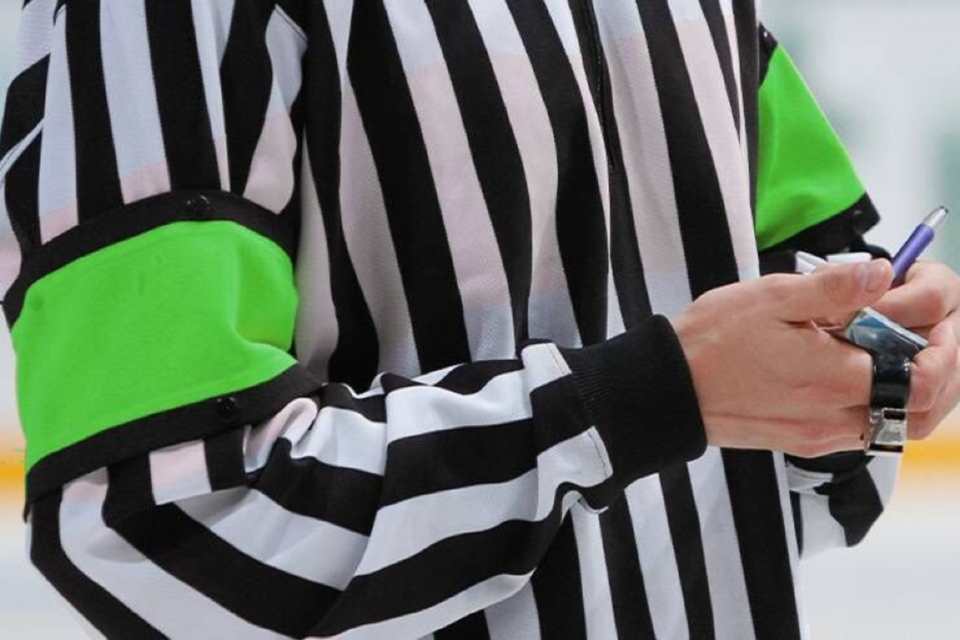The Cambridge Minor Hockey Association is taking another step toward keeping its referees away from abuse.
A green arm band policy is being rolled out in the Tri Cities Interlocking House League Program in Cambridge, Kitchener and Waterloo.
Through the policy, referees aged 14, 15 and 16 are subject to wearing a green arm band on their left sleeve to identify themselves as new officials to spectators, players and coaches.
It was an idea CMH president John Morton saw in a league in northern Ontario and thinking it could make a positive impact on retaining officials, he approached his referee in chief about it.
"I talked to him to see if this is something we wanted to do," Morton said.
"He took it to the Alliance and they thought it was a good program."
Alliance Hockey is the governing body that oversees 23 minor hockey associations in southern Ontario, including Cambridge.
When a disagreement is had on the ice, coaches and players are instructed to address the older referee working the game, not those wearing the arm band.
"These are first year kids that are going to make mistakes so we don't want coaches and player addressing them," Morton said.
"You lose kids in the first year of officiating because they haven't learned how to deal with it."
Morton emphasized the implementation of the arm bands didn't stem from a rash of abusive incidents but rather as a preventive measure to ensure the arena is a safe place for everyone.
Although, like many people involved in the game, he's seen his fair share of disrespectful behaviour.
"The first year my son refereed he was 14 and he didn't make it through a game," he said.
"He couldn't take it, he couldn't handle people screaming at him. I've been in this association a long time and seen it first hand. I've had to deal with coaches and parents that cross the line. This is hopefully a tool to enhance their experience."
Data on incidences throughout the season will be tracked and analyzed to understand how effective the policy is.
While it's currently running on a two year pilot limited to the tri city house league, Morton could see Alliance expanding it if all goes well.
"If the results are good, Alliance might look at moving it to other associations," he said.
"For me, I’m hoping at the end of this season we can sit down and have a discussion with the officials who wore them and see what they thought about it. Hopefully we don't have too many kids dropping out."



